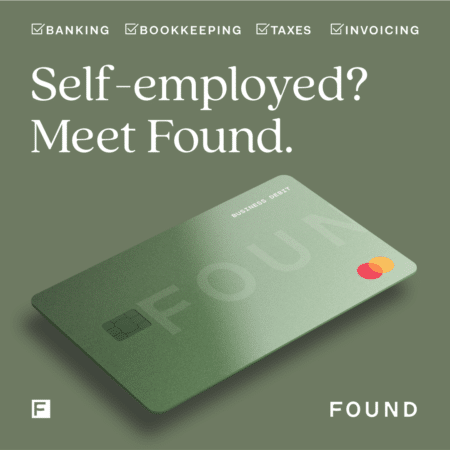In the competitive realm of freelancing, possessing technical expertise alone isn’t enough to distinguish oneself. Standing out in the crowded market requires freelancers to embrace the role of visual storytellers as a powerful branding tool.
Freelancers hold the remarkable ability to weave narratives through their craft. Beyond merely depicting a subject, an effective brand narrative crafted through imagery unveils character, stirs emotions and immerses the audience in a visual journey. Skilful narrative photography possesses the extraordinary capacity to inspire, captivate, and persuade.
This article delves into how freelancers can carve out their unique creative voice and brand, enabling them to effectively showcase their skills and secure business opportunities. We’ll take a look at techniques for exploring deeper into clients’ stories, enabling freelancers to visually narrate their distinct narratives and secure more deals. By refining the methods of capturing, editing, and conveying stories through photography, freelancers can rise above the competition and attract more meaningful projects.

The Power of Visuals for Storytelling
The fusion of storytelling and imagery emerges as a potent tool for brand development. Images possess an unrivaled ability to weave compelling stories. When individuals engage with a photograph, they become active participants, transported into the scene with the freedom to explore details, infer narratives, and envision themselves within the captured moment. This dynamic interaction provides freelancers with abundant opportunities to convey messages and highlight unique selling points.
The impact of visuals lies in their capacity to elicit visceral reactions and foster empathy for the subject matter. Photographs, videos and graphics transform fleeting moments into enduring messages capable of shaping perspectives and influencing attitudes. For freelancers, the ability to craft scenes that draw viewers into a narrative is a powerful asset.
Can you depict characters that resonate with the audience on a personal level or capture the ambiance of a business in a way that immerses customers in a sensory experience? Can you convey a product’s purpose through thoughtful arrangement and lighting? Successful brand storytelling through imagery involves portraying subjects as conceptual entities rather than mere objects.
Crafting Your Freelance Brand Narrative
Develop a Unique Perspective and Point of View
Establishing a distinctive creative voice is key to standing out in the market. Identify the specific style, subject matter, and techniques that resonate with you so you can refine your skills to build a cohesive portfolio that showcases your individual viewpoint. What captures your attention and motivates you to capture the moment? Your perspective is a powerful tool in setting yourself apart from your peers in the field, whatever your niche, making it crucial for potential clients to choose you for your distinct outlook.
Convey a Creative Philosophy Through Your Portfolio
Crafting a compelling portfolio is crucial for freelancers across all disciplines. Your portfolio serves as a narrative of your identity as a freelancer, showcasing not only your skills but also the passions and principles that drive your work. Use your narrative to convey a consistent and relatable message, allowing potential clients to connect with your journey on a personal level. Consistency is key so be sure to infuse all aspects of your personal brand with the same creativity and uniqueness that defines your work, ensuring that every platform reflects your distinct voice.
Freelancers should thoughtfully curate their best work to convey the core ideas and values that shape their creative process. This strategic approach helps clients gain insight into your unique vision and what collaboration with you entails. For example, leverage platforms like blogs or vlogs to share behind-the-scenes glimpses, project highlights, and lessons learned throughout your freelance career. This not only humanizes your brand but also allows clients to engage with the ongoing narrative of your professional evolution.
A standout portfolio extends beyond displaying technical expertise; it should articulate what makes you distinctive and why you are the perfect match for a client’s requirements. Allow your images to guide viewers through the narratives you wish to associate with your brand. Through a compelling and intentional portfolio, potential clients can quickly discern what sets you apart from others and why you are the optimal choice to fulfill their business objectives.
Let Images Reflect Your Brand Voice and Style
Standout freelancers often possess a distinct visual identity that encapsulates their individual perspective. This identity is expressed through stylistic choices, encompassing preferred visual elements, processing techniques, and recurring thematic concepts. Recognize the defining threads that shape your style and ensure they consistently permeate your work, as the right clients are actively seeking these distinctive qualities for their marketing endeavors.
Visual elements and copy imbued with your unique signature will naturally draw clients who value your specific aesthetic. Allow your work to narrate the ongoing tale of your personal evolution, capturing the shifts in subjects, the embrace of new challenges, and the refinement of your skills. Embrace creativity by exploring unconventional concepts or ideas; it could be the distinctive feature that prompts a brand to reach out and collaborate.

Take Time to Understand Your Clients’ Goals, Values and Customers
Getting to know your clients deeply is the foundation for conveying their unique stories visually. Make time for in-depth conversations where you can learn about their history, values and vision. Ask about the people behind the brand and who they aim to reach, and listen closely to understand what narratives and connections they hope to build with their audience.
Immersing yourself in their world enables you to tell their story authentically, capturing the essence of the brand from the inside out. Approach each project with a beginner’s mind, taking time to study their work and perspectives. The more insight you gain into what makes them special, the better you can translate that into impactful visual storytelling that resonates.
Visit Your Clients’ Spaces and Engage With Their World
Seeing your clients’ spaces and processes first-hand provides invaluable context for conceptualizing shoot ideas. Take the time to tour their workspaces, observe their teams in action and get a feel for their brand vibe.
This will enable you to draw inspiration from the environments and capture behind-the-scenes moments that customers rarely see that can then be reflected back in the style of graphics, video content or the tone of their website copy. The resulting content, photos and videos will tell richer, more authentic stories by pulling back the curtain. By immersing yourself in their world, you can ensure that you’re putting the right spin on their narrative.
Think Outside the Box
In the realm of freelancing, adopting a mindset of creativity and innovation is paramount for effective client engagement. Encouraging freelancers to embrace unconventional concepts and ideas, it explores how stepping beyond the norm can become a compelling selling point.
By showcasing your ability to approach projects with fresh perspectives, you not only set yourself apart but also increase the likelihood of capturing the attention of brands seeking a distinctive and original voice. As freelancers explore uncharted territories in their work, it becomes a catalyst for sparking the interest of other potential clients and encourages brands to initiate collaboration based on the allure of a unique and imaginative narrative.
Post-Processing for Narrative
Thoughtful editing and post-processing allow you to shape narratives in your visuals by controlling the viewer’s gaze. For example, you may choose to crop images to hone in on essential details that support the story being told, or adjust contrast, color and lighting to highlight key subjects and downplay distracting elements. Use depth of field, leading lines and natural frames to steer the viewer’s perspective and guide them through the intended narrative journey within each image through deliberate choices in editing.
Post-production presents the opportunity to set the emotional tone of images. Warm, desaturated filtering can convey nostalgia and evoke memory, while cool, high contrast tones feel sleek and modern, and boosted color saturation intensifies a lively, energetic mood. Whatever tone best aligns with your clients’ narratives, editing allows you to refine images to achieve that feel.

What next?
Storytelling is central to creating compelling work. By mastering the art of conveying clear narratives, freelancers can engage audiences on a deeper level. Know your own voice – develop a consistent creative style and portfolio that conveys your distinct perspective. Take the time to understand your clients’ worlds so you can tell their unique stories authentically. And don’t be afraid to edit your work to capture the right tone, be it text, images or even editing the type of work you show in your portfolio.
With practice, you can learn to see the world through a narrative lens and bring stories to life. By fine-tuning how you craft compelling brand narratives, you can attract more meaningful work with clients who appreciate your dedication to impactful visual storytelling. Strong narratives are essential for breaking through the noise and engaging viewers. With development and experience, you can build and grow a freelance business rooted in your distinct perspective.
Keep the conversation going…
Over 10,000 of us are having daily conversations over in our free Facebook group and we’d love to see you there. Join us!

